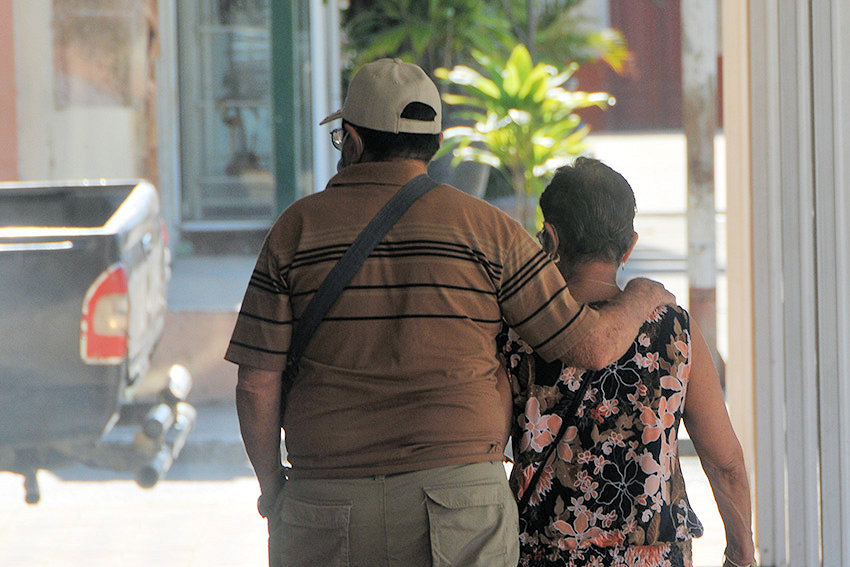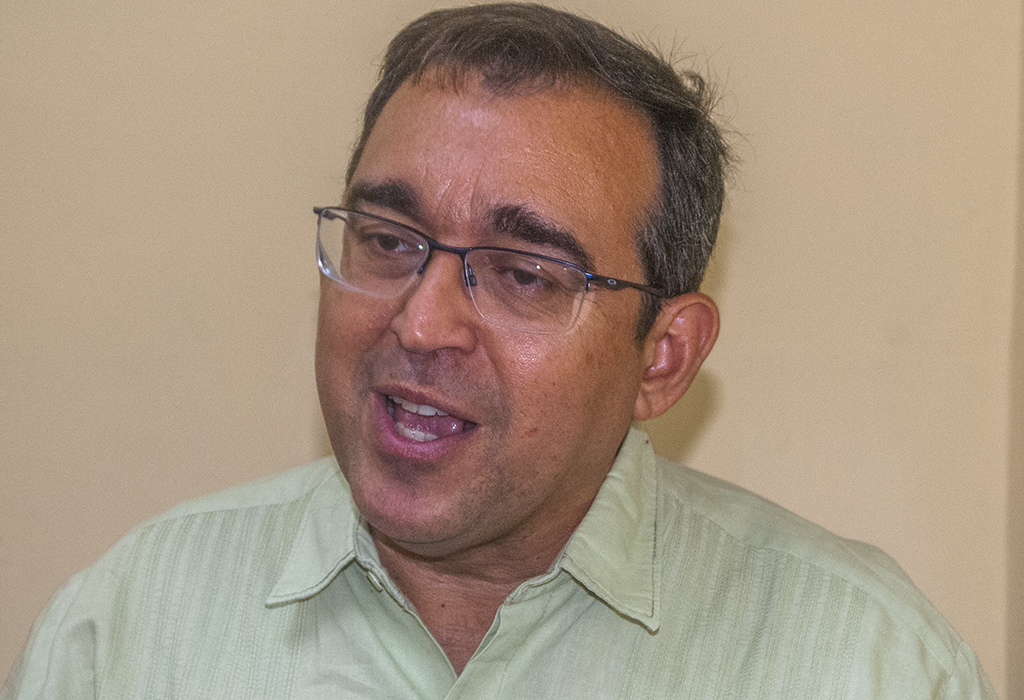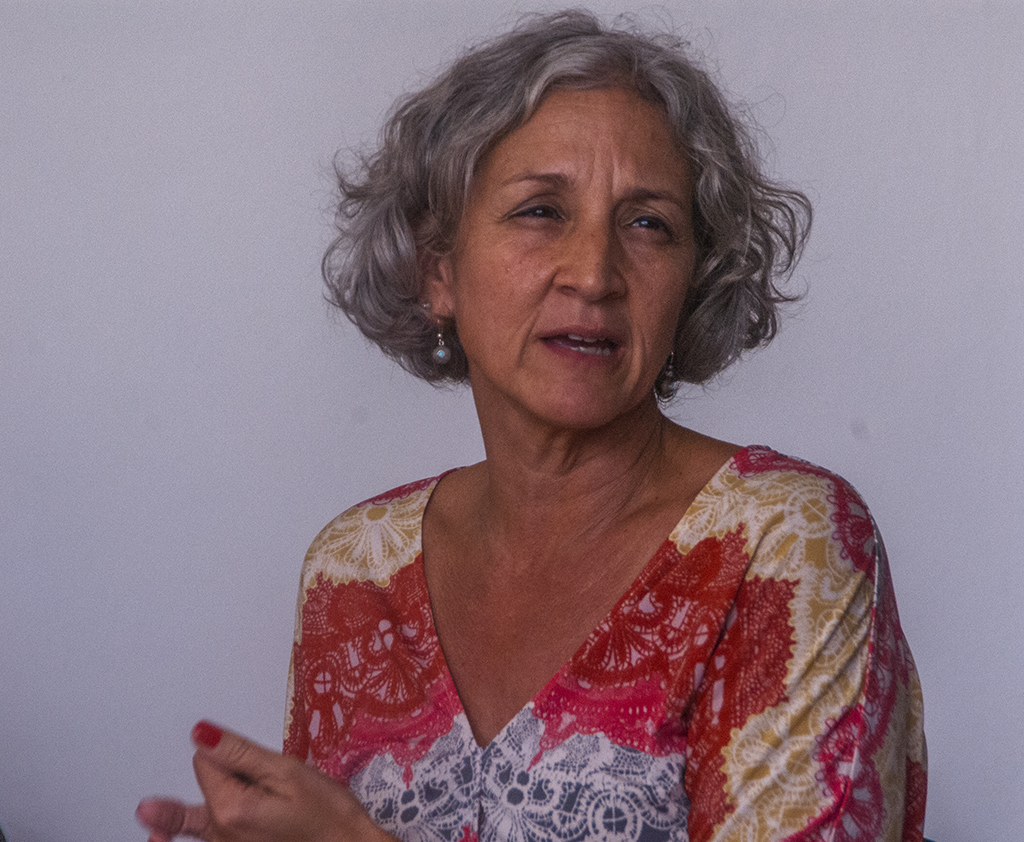
"The history of people is not only written with their DNA but also with their emotions", emphasizes Leonardo Pérez Gallardo, Doctor of Juridical Sciences, to judges, lawyers, notaries, and other legal operators in Las Tunas. A year after the Family Code was approved by a popular referendum, the professor at the Faculty of Law of the University of Havana is sure that there is still much to be done. With a similar scientific degree and rank in the same university, Yamila González Ferrer, for her part, insists on the need for a change of mentality that transforms into action the principles enshrined in a legal norm that made transparent the country we are and outlined the one we dream of, also in family matters.
Both academics, perhaps the best-known faces among those who took part in the broad drafting commission of the Code, held contacts with colleagues from Las Tunas to assess the progress of the implementation of the Code and, above all, to warn about deviations or misinterpretations that threaten it. 26 could not miss the opportunity to ask them a few questions.
Professor Gallardo, ever since we first heard the first version of the Code, we have heard that it elevated socio-affective relationships to a rank similar to biological ones, for example, when it comes to defining key aspects such as filiation and others present in the family sphere. How can the Code's enforcers now measure something completely subjective like affection?
"No one denies that the family is sustained by blood ties. What has happened is that biologics, the objective data of DNA, has been exacerbated. What we are looking for today is, based on the principle of family reality and based on the life stories of each person, to design this family model. It is a family model in which an affective construction has prevailed, in other words, a construction that goes beyond the biological data. With what means of proof? Well, with those established by law: testimonial evidence, documentary evidence, expert evidence."
"Of course, it is something subjective that passes through the mind of the judge; and it will be up to him to determine whether there is a true approval of the subjective data. And since it is in that area, it is possible that the judge of the second instance or the judge of cassation may not assess it in that way. The point is that it does not operate only in the DNA field."
"It would be petty or selfish if, because of a question of the difficulty of proof, the degree or intensity of the means of proof, or their complexity, we were to fail to give a reception in law to family or personal ties that are going to take root as a family without being permeated by blood. To maintain that the family is based only on blood is a minimalist and reductionist position of what the family is today."
"The family goes beyond blood; it is sustained by feelings, by emotional complicity, by bonds of that affective nature. The ideal situation would be to reconcile blood ties with emotional ties. What the law currently foresees is that, according to each case, if there is a prevalence of affective ties and an absence of consanguineous ties: Look, it must be resolved following the best interests of the child. This best interest has an important role to play in the family construction of affection."

It has been very controversial and you addressed it: the diversity of families. Many of the critics of the Code said that there was a kind of libertarianism, that now anyone could be a family, and yet here you have established the idea that there are limits...
"I think that the first thing we need to work on today is to define the limits of the concept of family. What cannot happen is that this open mentality of allowing or protecting non-traditional, non-conventional family models becomes a cover for eccentricities or is detrimental to the best interests of the child. That's an element that we have to keep very much in mind."
"Nor can we think from an extremely selfish view that whatever we fancy and want to describe is a family model. Family models are based on essential assumptions that arise from the construction of affectivities, from the construction of relationships of different natures, vertical, horizontal, or transversal, which take root as society receives them. What we cannot deny is that today we have family models that were not described before. Some because the law accepted them, others because they were not visible."
"The concept of family is not static; it is continually evolving. However, I do draw attention to the fact that we must be prudent and measured at all times as to which family model I am going to accept and how I am going to accept it."
This connects with what you warned your colleagues about rationality when making judicial decisions...
"Common sense and rationality are two qualities, two elements, two compasses that jurists must have. Knowing with common sense where to find the limits. Today we are talking about polyamorous families. Well, the question is, is this the right time to accept them, is there sufficient social acceptance of this model to consider it a new family model? Because here, and this is an important element, where are the limits that allow me to conceptualize a family model? If I go beyond the limits, then I go beyond what is permissible."
"The law seeks the protection of social trends that can never be forgotten, social trends, that is, when a phenomenon already becomes a trend. And protection, trend, there is an intuitive protective claim, because otherwise if there is no reception of the model as such, I cannot give it legal visibility."
Professor Yamila, you have insisted a lot on the danger of stereotypes. How difficult can it be to make the Code more alive than it already is, especially when different legal actors apply it?

"I believe that we have to do a great deal of work to assimilate the contents of the Code, which are very advanced, that promote an important cultural transformation in our ways of seeing and thinking. We come from a patriarchal culture, from a culture in which there are many stereotypes, many prejudices linked to being a woman, to being a man, also linked to children and adolescents, to older adults, to people with disabilities."
"Where we put limits on these people, we question their autonomy, their independence to make decisions. For example, when it comes to the phenomenon of gender violence and domestic violence, there are still many prejudices and myths: That if she likes to be beaten; that if I'm not going to interfere because, between husband and wife, nobody should interfere; that if I hit the child because he is mine; or if I do with the child what I want."
"These are all concepts that are embodied in our own Constitution in all their magnitude from human dignity and that the Family Code develops in its principles and content. Therefore, we have to transform ourselves so that these patterns that we have established, which mental schemes that affect our actions are, the way we see life, do not affect the way we exercise our profession."
You said, and you gave the example of protocols. Now a word has become part of our vocabulary with the pandemic. But in the case of legal operators, you suggested doing the same as the doctors who have them so that subjectivity and what in communication is called mediation do not affect them when applying the Code.
"I think it will be something that will help us a lot. Today we have the appropriate legal context to fight against all forms of discrimination, against all forms of violence. But as this subjectivity has not yet been transformed, these protocols of action that respond to the change of paradigm will help us to be rigorous in the way we act, regardless of the way we think. Of course, awareness raising and training, plus the application of these protocols will contribute to providing a better service and to transforming ourselves little by little."





